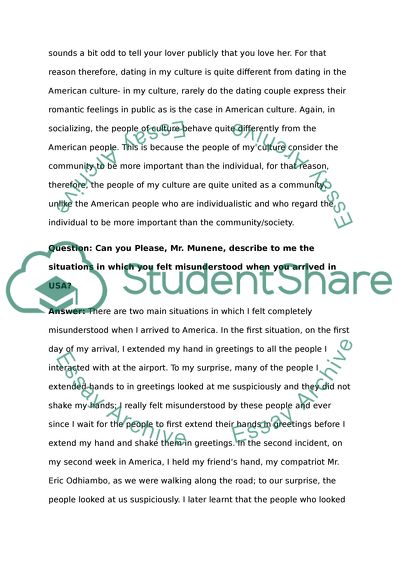Informal interview with immigrant from kenya Essay. Retrieved from https://studentshare.org/english/1692583-informal-interview-with-immigrant-from-kenya
Informal Interview With Immigrant from Kenya Essay. https://studentshare.org/english/1692583-informal-interview-with-immigrant-from-kenya.


